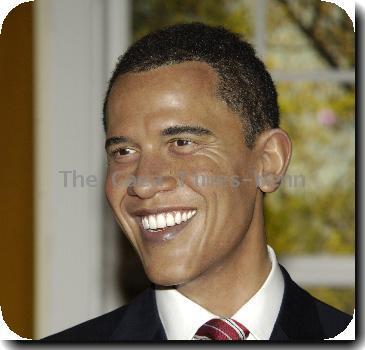Kyrgyz gather to mourn revolt victims hours after 67 are injured in new unrest overnight
By Yuras Karmanau, APFriday, April 9, 2010
Kyrgyz mourn revolt victims; new unrest overnight
BISHKEK, Kyrgyzstan — After a night of gunfire throughout Kyrgyzstan’s capital, thousands of grieving and defiant residents gathered Friday in Bishkek’s main square to mourn victims of this week’s revolt that left at least 75 people dead and forced the president to flee.
Opposition leaders were moving to solidify their control of the Central Asian country, but President Kurmanbek Bakiyev has refused to relinquish power. He fled Bishkek for the south, where he has strong clan support.
New unrest overnight in Bishkek — apparently from clashes between looters and security forces backed by vigilantes — led 67 people to seek medical attention for gunshot wounds and injuries from rubber bullets and head injuries, the Health Ministry said.
Friday’s mourners blamed the absent president for this week’s bloodshed as they gathered on the sprawling Ala-Too Square, where two days earlier security forces opened fire on a crowd that had tried to storm the main government building to protest corruption and rising utility costs.
“We grieve over our heroes. They are real heroes who have sacrificed their lives for the future of Kyrgyzstan,” said Khatima Immamaliyeva, a 44-year-old office worker holding a red carnation and crying. “Bakiyev must bear responsibility for the deaths.”
Another mourner, 26-year-old Azimbek Sariyev, said “my friend Talas perished. I hope he hasn’t died for nothing. We have ousted Bakiyev, and won’t allow the rulers to mock us.”
The former Soviet nation is home to a key U.S. military base supporting the fighting in Afghanistan that opposition figures have in the past said they wanted to see shut down. Kyrgyzstan also hosts a Russian military base and is the only nation where both Cold War foes have bases.
Roza Otunbayeva, a former foreign minister now heading the interim government, said there were no plans yet to review the lease agreement for the Manas air base, which runs out in July. She said her government would meet U.S. diplomats for talks in Bishkek.
U.S. military officials said Kyrgyzstan halted flights for 12 hours Wednesday, confining troops to the air base; they did not say if flights had resumed. Some 1,100 troops are stationed there, including contingents from Spain and France, in support of NATO operations in Afghanistan.
President Barack Obama and Russian President Dmitry Medvedev discussed Kyrgyzstan before signing an arms treaty in Prague on Thursday.
Michael McFaul, Obama’s senior director for Russian affairs, emphasized that the U.S. did not view the conflict as any kind of proxy struggle between the U.S. and Russia.
“The people that are allegedly running Kyrgyzstan … these are all people we’ve had contact with for many years,” McFaul said. “This is not some anti-American coup, that we know for sure. And this is not some sponsored-by-the-Russians coup, there’s just no evidence of that.”
In a sign that Russia may lend its support to the opposition, Prime Minister Vladimir Putin called Otunbayeva on Thursday. Any suggestion that Russia is backing the new leadership would add to the pressure on Bakiyev to step down.
The deputy head of the self-declared interim government, Almazbek Atambayev, was flying to Moscow Friday for consultation with unspecified Russian government officials, the ITAR-Tass news agency reported.
Bakiyev, who fled the northern capital for his stronghold in the south, told a Russian radio station Thursday that “I don’t admit defeat in any way.” But he also said he recognized that “even though I am president, I don’t have any real levers of power.”
“What has taken place is a veritable orgy carried out by armed groups and I do not believe this is a defeat for me,” Bakiyev said.
He spoke from southern Jalal-Abad region, where Bakiyev’s popularity is said to remain high — raising concerns he might try to secure his survival by exploiting the split between the more urban north and rural south.
Since coming to power in 2005 amid street protests known as the Tulip Revolution, Bakiyev had ensured a measure of stability. But the opposition said it came at the expense of democratic standards and accused Bakiyev of enriching himself and his family.
Associated Press writers Leila Saralayeva in Bishkek and Jim Heintz in Moscow contributed to this report.
Tags: As-kyrgyzstan, Asia, Barack Obama, Bishkek, Central Asia, Eastern Europe, Europe, Kyrgyzstan, Moscow, North America, Russia, United States, Vladimir Putin

